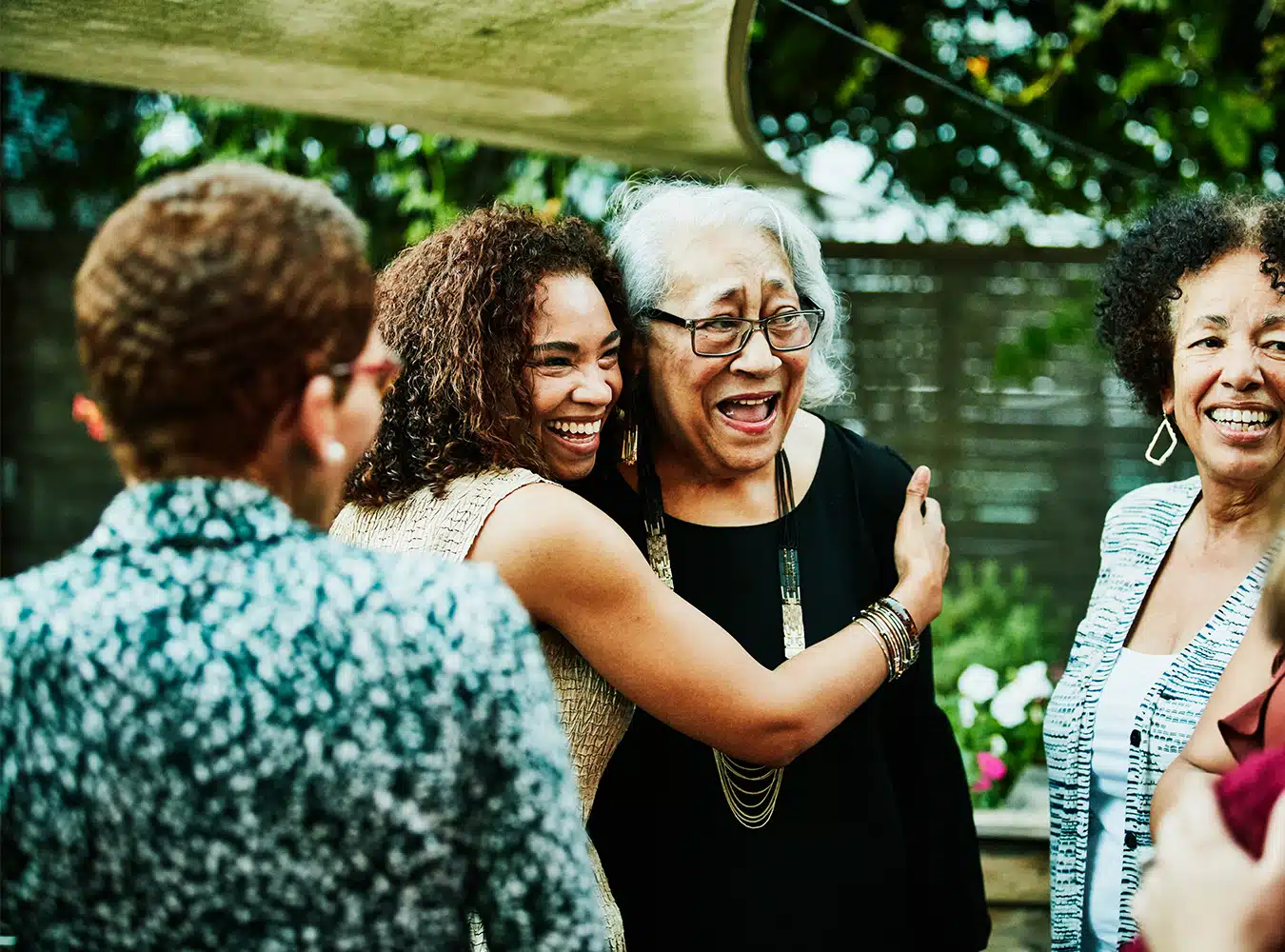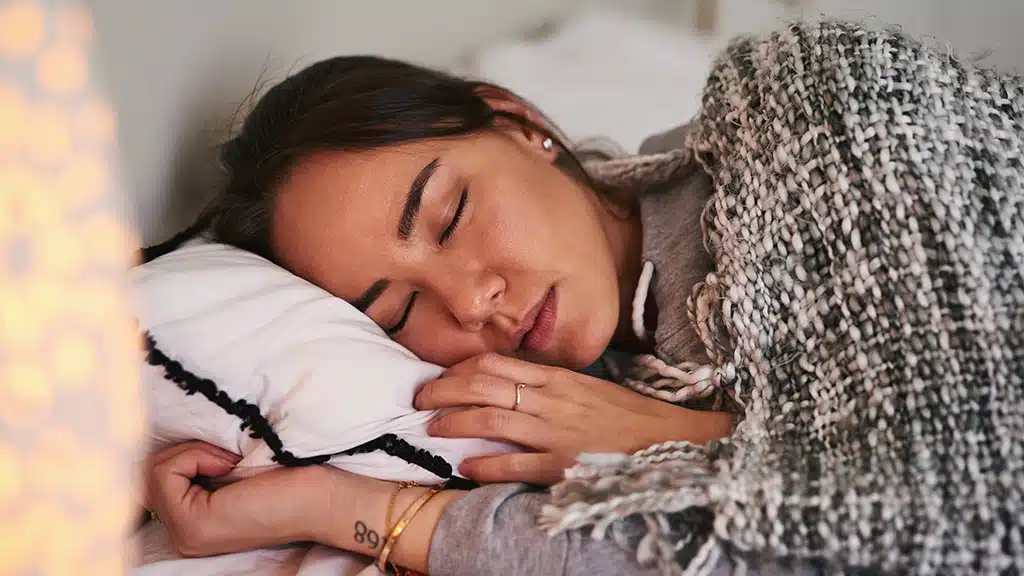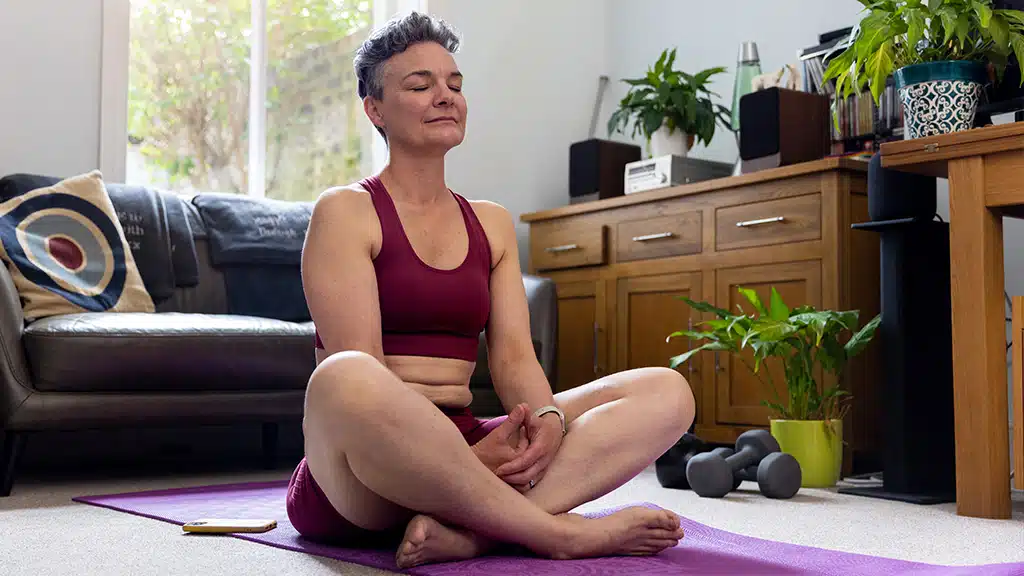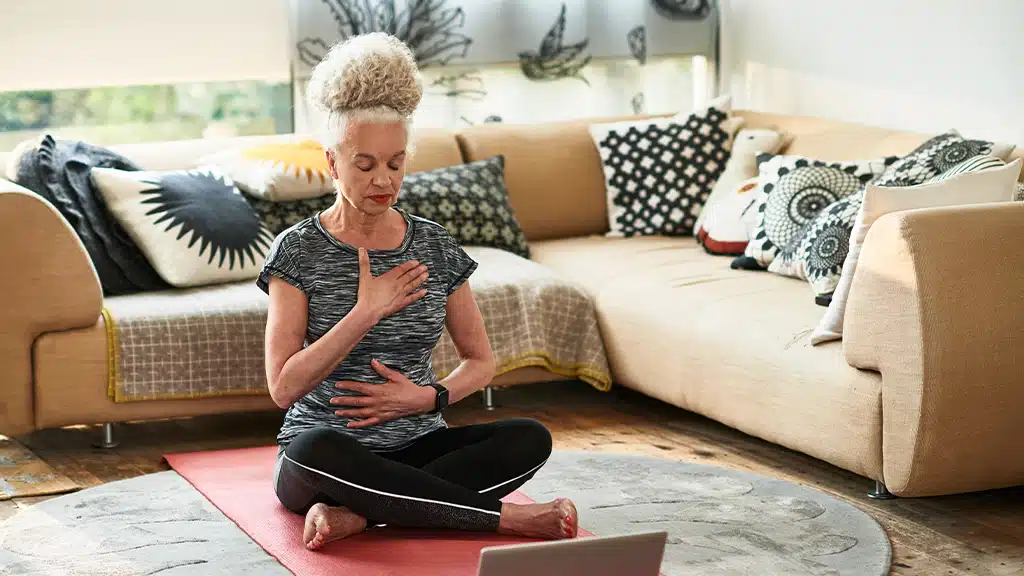Saprea > Online Healing Resources >Common Symptoms: Sleep Issues
What Are Sleep Issues?
Sleep disturbances are common in all age groups and in all countries across the world. They can be caused by a range of factors, from physical, emotional, or mental distress to medical issues, genetic characteristics, or disruptive environments. Whatever the reason, sleep issues involve anything that frequently disrupts or prevents restorative sleep, which refers to sleep that completes all five stages of the sleep cycle.
And as important as we know that sleep is, sometimes fixating on trying to fall asleep can cause more harm than good. But because sleep is so critical to physical and mental health, making adjustments to improve sleep is well worth the effort.
Sleep issues can include things like:
- Insomnia
- Nightmares or night terrors
- Waking during the night
- Restless leg syndrome (RLS)
- Sleepwalking
- Sleep paralysis
- Bedwetting
- Poor quality of sleep
- Teeth grinding
- Unusual breathing patterns
How Is Sleep Connected to Child Sexual Abuse Trauma?
Among survivors of child sexual abuse, issues with sleep is the most common symptom. One study found that more than 70% of survivors experienced moderate to severe levels of insomnia.1 There may be a number of explanations for this, but the big takeaway is that if you are a survivor of childhood sexual abuse and you are struggling to get restorative sleep, you are not alone.
Trauma affects the brain in a number of ways, all of which may have a negative impact on sleep. Trauma that occurs during childhood is especially disruptive because of the brain’s active development during this period. The brain has an amazing ability to store memories and react to situations that trigger those memories. If a survivor experienced abuse in environments associated with nighttime, they may have a harder time feeling safe when it’s time to sleep or may experience increased anxiety associated with bedtime.
Additionally, the brain’s stored memories may replay in nightmares (or night terrors, depending on the ability to wake from the dream). The body may become so skilled at protecting itself from danger that it releases hormones to help with survival (adrenaline and cortisol) just when it’s most important for the body to begin to relax. It’s essential to understand that the body is trying to do its job, so the frustration of not being able to sleep isn’t an indication of being “broken” or “flawed.” Instead, just as the brain and body learned to protect themselves, they can also relearn feelings of safety and relaxation.

Healing Webinar

Saprea Retreat
What Is Sleep Hygiene?
Sleep hygiene simply refers to the consistent practices you go through to maintain your sleep schedule. When it comes to getting quality rest, routine is preferred; certain behaviors can send signals to your brain and body that it’s time to start winding down. And these behaviors aren’t only reinforced by what you do right before bed, but also by what you do throughout the day. There are a number of things that sleep experts recommend as part of day-to-day sleep hygiene, including:

Daytime routine
- Wake at a consistent time every day.
- Avoid napping.
- Get some exercise.
- Let in some sunlight (but be sure to protect your skin from harmful rays).

Evening routine
- Reduce/eliminate caffeine intake after lunch.
- Reduce/eliminate light exposure up to 3 hours before bed.
- Reduce/eliminate screen time before bed.
- Avoid the habit of eating too much close to bedtime.
- Engage in activities that encourage relaxation.

Bedtime routine
- Go to bed at a consistent time every day.
- Create a peaceful, sleep-friendly environment.
- Listen to your body for clues about what to do/avoid.
- Think positive thoughts about sleep, your ability to sleep, and your safety.
How Can I Improve My Sleep?
Because getting adequate, quality sleep is so critical to the mind and body’s ability to heal, learn, focus, and cope, investing time and energy into improving the sleep you get is well worth the effort. You might first address the sleep symptoms you experience by Acknowledging the sleep hygiene areas where you can make some improvements. It may also be helpful for you to evaluate what aspects of sleep are most difficult for you (staying asleep, getting to sleep, nightmares, etc.), so you can determine which tools and strategies might be the most effective at improving your sleep.
Be patient with yourself and your body as you make adjustments and changes; just as it took time to develop the habits and routines you are currently in with your sleep hygiene, it will also take time to develop new habits and routines. You may find that some things work better than others, or that nothing seems to be making any difference. We encourage you to keep working at improving sleep. Try new ideas; retry techniques you haven’t attempted in a while.
What About Sleep Aids?
In some circumstances, sleep aids may be beneficial so you can avoid the debilitating effects of sleep deprivation. There are many aids available, including natural supplements (melatonin, magnesium), herbal teas (chamomile, lavender), and both over-the-counter and prescription medications. Work with your doctor to identify appropriate sleep aids that might work for you. (You may also want to seek medical consultation if you are concerned your sleep issues are tied to an underlying condition, such as sleep apnea, in which you experience pauses in breathing during sleep.)
Along with sleep aids, below are a few other resources you can try as you develop and test out new tools and practices for your sleep hygiene.
Resources to Help Manage Sleep Issues

Sleep Affirmations

Meditation

